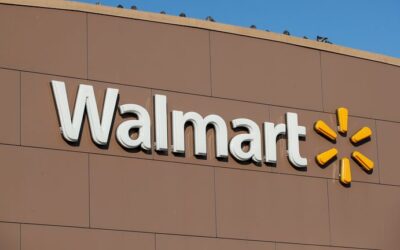London’s transport regulator has banned one of the capital’s most prominent ride-hailing services, days after Uber Technologies was awarded a new licence following a legal challenge.
Sky News has learnt that Ola, an Indian group which only began operating in London in February, has been told that its licence will not be renewed because of “public safety” failings.
Ola, which is backed by the Japanese technology giant SoftBank’s Vision Fund, is understood to have been told last week by Transport for London (TfL) that it was not “fit and proper” to hold a private hire operator’s licence.
The decision is a bitter blow to Ola, which claimed earlier this year to have 25,000 drivers registered on its platform in London and which also serves dozens of other UK cities, including Birmingham, Cardiff, Coventry and Liverpool.
In a statement issued following an enquiry from Sky News on Sunday evening, TfL said it had discovered a number of failures in Ola’s operations, including breaches of its regime which led to unlicensed drivers and vehicles undertaking more than 1,000 passenger trips on the platform’s behalf.
Advertisement
Ola also stands accused of failing to notify TfL of these transgressions.
Image: The news comes just days after Uber Technologies was awarded a new licence following a legal challenge
The Indian group, which says it has carried out more than 1bn trips for passengers around the world, has 21 days to appeal against TfL’s decision.
More from Business
In its statement, which is expected to be released widely on Monday, Helen Chapman, TfL’s director of licensing, regulation and charging, said: “Our duty as a regulator is to ensure passenger safety.
“Through our investigations we discovered that flaws in Ola’s operating model have led to the use of unlicensed drivers and vehicles in more than 1,000 passenger trips, which may have put passenger safety at risk.
“If they do appeal, Ola can continue to operate and drivers can continue to undertake bookings on behalf of Ola.
“We will closely scrutinise the company to ensure passengers’ safety is not compromised.”
It was unclear on Sunday night whether Ola planned to appeal, although given its prediction that it could overtake Uber in London within a year of launch, it seems unlikely to withdraw from such a potentially lucrative market without a fight.
In August, Ola announced a strategic partnership with Gett, another ride-hailing service, to offer Gett’s corporate clients access to Ola’s platform in London.
Ola claims it has been in the vanguard of public safety improvements at its UK operations, introducing a requirement for drivers to clean and disinfect their cars between each ride.
Marc Rozendal, Ola’s UK managing director, said just weeks ago: “Partnering with Gett and its leading offering for corporates opens a large market for Ola’s platform as travel begins to resume in London, allowing us to further scale by meeting the clear demand from corporate users for consumer ride-hailing.
“This is yet another step in our mission to connect people and build mobility for people in the UK and around the world.”
Ola was founded in 2011 by Bhavish Aggarwal and Ankit Bhati, and now operates in more than 110 cities through 1m drivers using cabs, auto-rickshaws, and taxis.
The ban on Ola comes less than a week after Westminster magistrates’ court overturned a ban on Uber, granting it an 18-month licence following an appeal.
It was the second time that Uber had been found not to be fit and proper by TfL over concerns about passenger safety.
The latest extension of its licence came with 21 conditions agreed by the company with TfL, prompting Sadiq Khan, the mayor of London and TfL chairman, to vow to continue monitoring the company.
Ola was contacted for comment.










